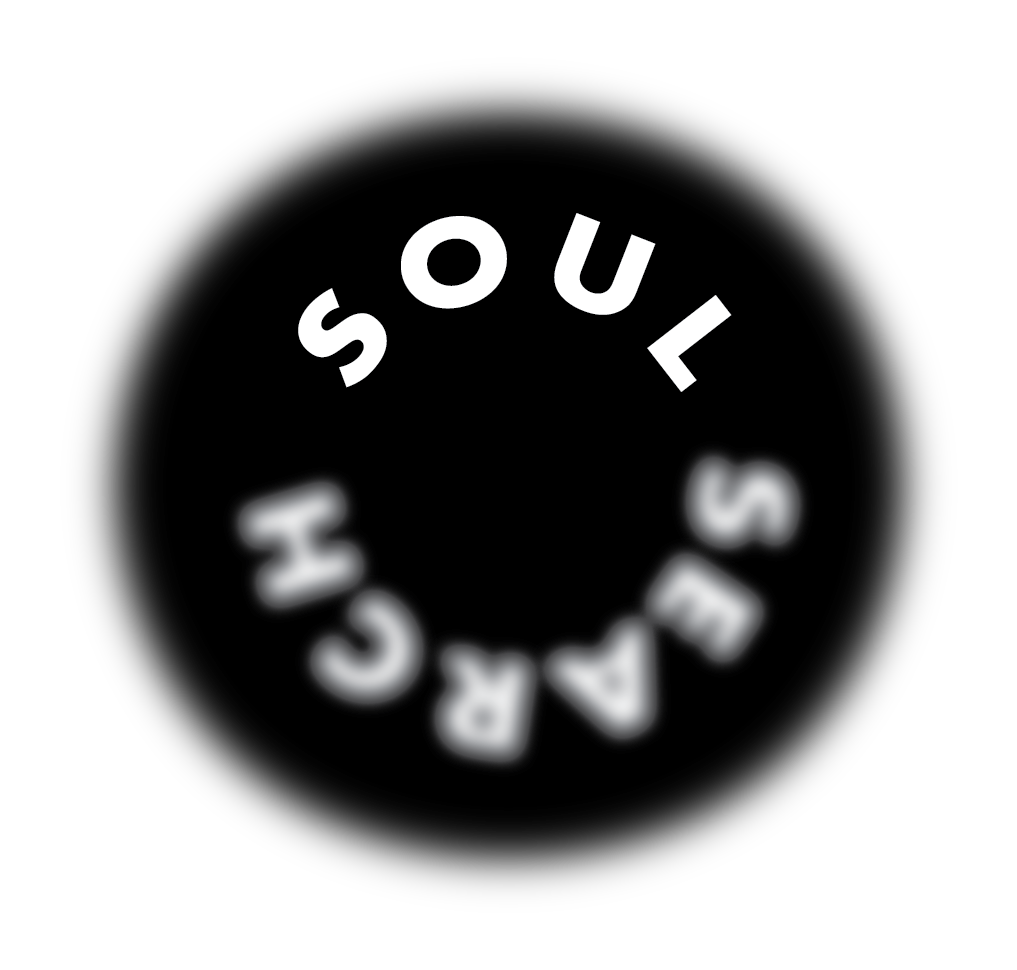
2. CALL
It was amid the aimlessness of my college years when the inner stirring began. Up unto that time, I had lived a rather pedestrian existence and outside of a childish fantasy of becoming a sports commentator, I did not give much serious consideration to the direction my life was headed. At some point in my freshman and sophomore years, however, and quite mysteriously, I was aroused from my meandering life by a yearning to “be” — to reach out into the world and find my place in it, to belong to something.
This new beat pulsing within me was both strange and irrepressible. I was being summoned, but by who and for what? I was being pulled, but to where? It is clear to me now that I lacked the emotional and spiritual resources to look within and interrogate the true nature of it. I was, quite frankly, an immature white male, merely twenty-years old with only a very shallow understanding of what makes for a life worth living. I had no real appreciation for the meaning in life born through struggle and sacrifice and solidarity. I was unable, therefore, to sense to what land this longing would lead me. Instead, I was taken by what glimmered out along the horizon, unaware it was nothing more than a mirage.
What shone before me was the 1987 Oliver Stone movie Wall Street. In it, Charlie Sheen plays the protagonist, Bud Fox, a young stock broker with a single-minded, if not obsessive, drive to make it big. The plot circles around the ethical decisions he makes to land Wall Street tycoon Gordon Gekko, famously played by Michael Douglas, as a client. Gekko had made a fortune on insider trading and eventually Fox gets sucked into his world of power and money and it costs him.
I found his youthful idealism seductive and was utterly taken by the abandon with which he chased his dream, often recklessly and against the wise council of his colleagues and family. He began as a nobody, much in the same way as I saw myself at the time. Middle-class. Indistinguishable. Vanilla. And yet there was a fire ablaze within him I longed for, a thirst for life beyond his limits that had him reaching out for something “more.” The inner stirring opened my eyes to this and I began to dream the dream of Bud Fox, the dream of “more.”
" My life will mean something if I am important, if people see me have this job, these things.”
As I look back on it now, there was no thing in particular that attracted me to the film other than the hyper-masculinity and misogyny and megalomania portrayed in it, all perfectly intoxicating to a young white male without a center of mature values from which to read life. It created a kind of mythology which I organized my life around, one which projected a limitless world I had not the audacity to dream on my own, a place hot with possibilities that would melt away the cool, icy layers of my drab existence.
It was, however, a very naive and superficial sense of meaning that I was chasing. The logic of it went something along the lines of: ”My life will mean something if I am important. And I am important if other people see me as having this kind of job, making this amount of money, having these things.” It frightens me now to consider the underlying narrative calcifying within me at the time — that I was only lovable if through my own own efforts I achieved some degree of professional success. Love, therefore, became yoked to performing and acquiring.
Perversely, this may have been an easier way to go about living than to deal with the growing insecurities I was experiencing at the time. I had a fear of intimacy resulting in a dry field of shallow relationships and an inability to deal healthily with my need for physical connection. I had an unease with my body that led to obsessions with exercise and diet. I felt inadequate around people who were more educated than me and had the markers of social status I lacked.
I was, in truth, terrified of my weaknesses and felt helpless to resolve them. They loomed mercilessly within me like a dark unending sea. So I took on the bravado of Fox and wore it like a shield. Wall Street became a gladiator-like arena in which I could at last prove my manhood — to myself primarily — and overcome every limit I had come to despise in myself, although I did not understand at all what it truly meant to be a man, other than the socially constructed one I had been exposed to year after year of my life to that point. My reading of the film only reinforced this. What I had come to know, although I was unable to articulate it at the time, was that my maleness required me to be successful and self-reliant and emotionally detached. I was to acquire things and to exert power over others, particularly women. I was to master life through my career.
Eventually I landed a job at an investment bank in San Fransisco at the beginning of the dot com boom in the late 1990s. How much of this was attributable to hustle or to serendipity or to some form of divine intervention I do not know. What I can say now with certainty is that white male privilege played a role, yet at the time I had no concept of it and was only dimly aware that it was a white male world I was inhabiting. There were quick promotions, inordinately high bonuses, interviews on financial TV and the Wall Street Journal. Within a few short years I was working at one of the most powerful hedge funds in the world. In a manner of speaking I had, like Fox, made it into the inner sanctum of Gekko’s office. Etched in my memory from that time was the feeling that would rise up in me during my walks to work early in the morning knowing that I had become what I always wanted to be.
Somewhere along the way, however, the naiveté about the dream started to give way to its sad and unavoidable truth. The tricky thing was that I had in some sense a genuine love for the stock market. It aroused my curiosity and seemed to connect with my talents — market-oriented ones, that is. Yet the utter intensity with which I gave myself to the work was always wrapped up in the payoff, becoming an image that was, in the end, illusory and therefore out of reach. It seems that, somehow, I fell more in love with that image than what was inherently good about the work. This eventually became the root of a deep unease grew within me.
“There is no knowing God without knowing what God holds in this boy.”
For a time, the frenetic pace of life, the long hours work required, the bonuses I received for performing well, was a kind of anesthesia that numbed this pain. I could ignore it by simply losing myself in more work. As the anesthesia dulled, however, I was forced to confront the terrible reality that the image was not really me. It could not be me. Although I did not know this for a time, I was in fact living in denial of my very inner being.
It seems that there was a boy within me that needed to be held and to be assured that he is good, but I had come to see his vulnerability as appalling and wholly unreconcilable with the kind of person I thought I needed to be. So I spent years pushing him away, choosing instead to perform for the affirmation of others, terrified by what it might mean if I gave in to his demands. Yet there was no great performance, no professional victory, no amount of money that could, once and for all, tell him so. So he haunted me. He once appeared to me in a dream lost with tears.
As I l think about it now, my soul is like this boy. I see echos of him in the raw tenderness of my son with his need to explore, to be known, to love and to be loved, his need to to become. God holds this boy deep within me and stirs up beautiful things in him, awakening a desire for the heart of the world that bursts forth like the brilliance of sunlight breaking through trees. There is no knowing myself without knowing this boy, his needs, his gifts. And there is no knowing God without knowing what God holds in this boy.
For too long I lived in estrangement from him. I did not know this boy, or want to know anything about him for that matter, so the longing God stirred in me became twisted into a drive to become everything the boy is not. It had me living in an imaginary world that seemed like everything at the time but which was, in fact, nothing at all. I was chasing after an empty freedom and it left me struggling, lonely and confused. I tremble to think how much of my life took me away from this boy and how much God desired to bring me back to him.
The puzzle I faced, which I was utterly unaware of for quite some time, was how to live as an adult not in denial of this boy but as an expression of him. I had to return to the boy in order to learn how to live. And yet what this required of me was to surrender to something that I did not understand. Only grace could untangle the knots of my own doing. It met me in the shadows where I found myself again.
But I knew none of this on that early summer morning so many years ago, my first day on the job at a boutique investment bank in San Francisco, when the whole world seemed to open up and I stepped into a glowing new land. And if someone had warned me of it all beforehand, I do not know if it would have made the slightest bit of difference. All that mattered at the time was work and the cry sounding some place deep within me for “more.”
“What chose you is the great desire.
Now all flesh bares itself to you.”
— Rilke
